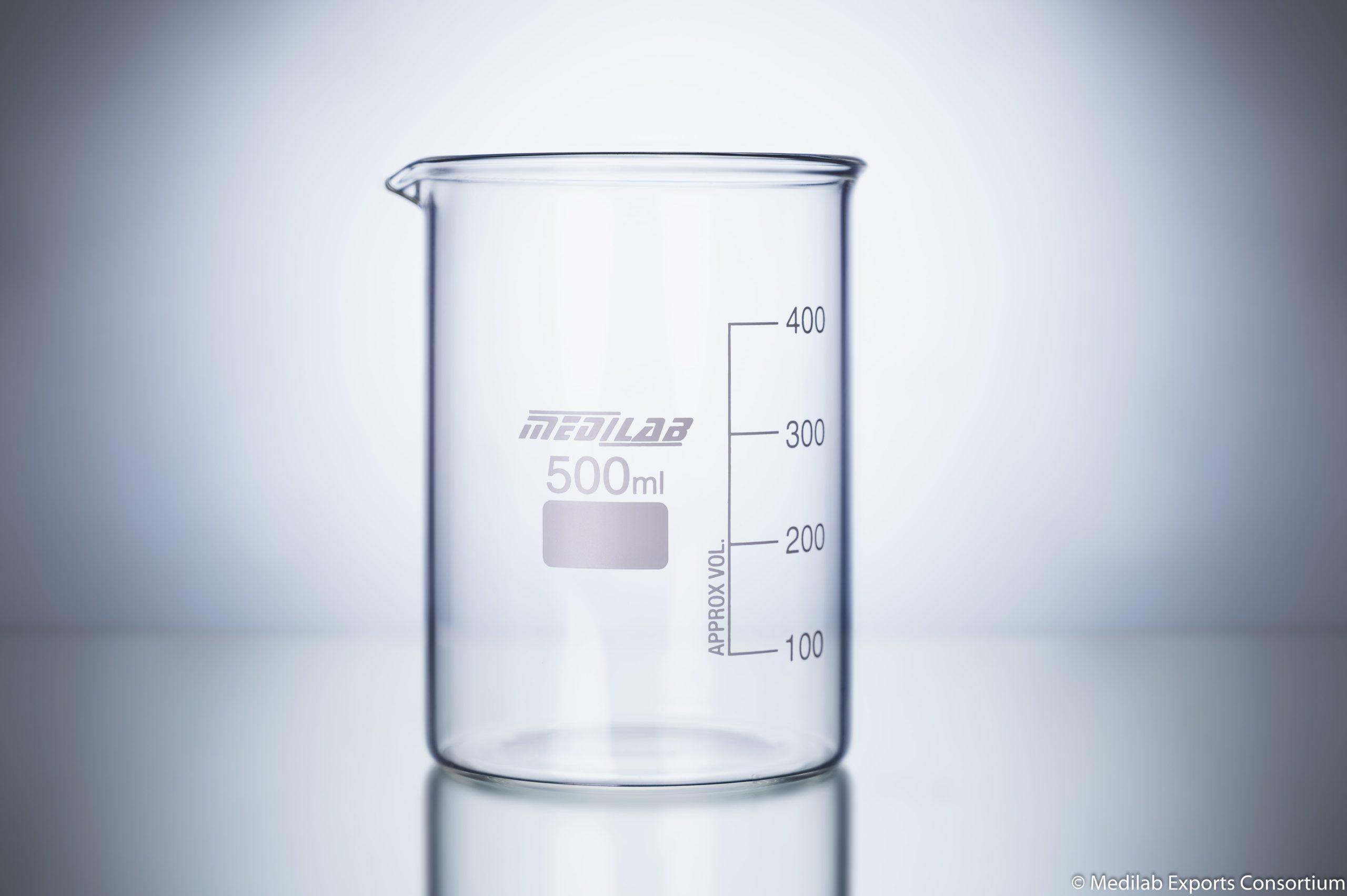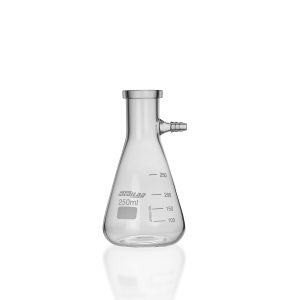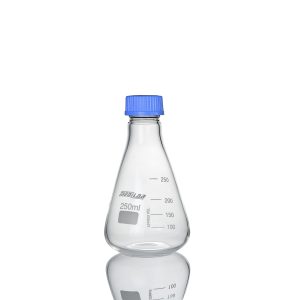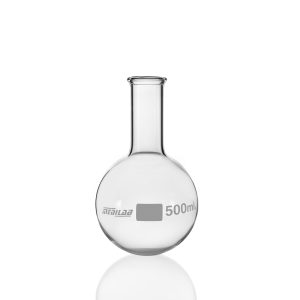Description
| Catalog No. | Capacity ml. | Dia. mm | Height mm |
| 11001/1.1 | 5 | 22 | 30 |
| 11001/1.2 | 10 | 26 | 35 |
| 11001/1 | 25 | 34 | 51 |
| 11001/2 | 50 | 42 | 58 |
| 11001/3 | 100 | 50 | 70 |
| 11001/3.1 | 150 | 60 | 88 |
| 11001/4 | 250 | 70 | 95 |
| 11001/5 | 400 | 80 | 110 |
| 11001/6 | 500 | 83 | 118 |
| 11001/7 | 600 | 90 | 125 |
| 11001/7.1 | 800 | – | – |
| 11001/8 | 1000 | 105 | 157 |
| 11001/9 | 2000 | 132 | 185 |
| 11001/10 | 3000 | 152 | 210 |
| 11001/11 | 5000 | 170 | 270 |
| 11001/12 | 10000 | 220 | 350 |
Beaker Low Form is a flat-bottom cylindrical container that comes in several sizes. Beakers are provided with a spout at its top rim for easy pouring. It can be both, graduated and non graduated, can be of different materials like Borosilicate Glass, PP, TPX, etc.
Uses of a Beaker in Laboratories:
-
Holding liquids – helps in easy containment of a liquid as a preferable containment vessel during an experiment.
-
Containing a chemical reaction – can be used to contain a chemical reaction while mixing two or more chemicals for an experiment in a wide mouth, flat bottom container.
-
Measuring liquids – graduated beakers are marked with easy to read volume marks for effortless measurement.
-
Heating liquids – a flat base cylindrical form of a beaker of Boro 3.3 glass is also used for heating the liquids on bunsen burners, heating plates, etc.
-
Stirring or Mixing Liquids – wide mouth cylindrical form of a beaker is easy to use the container for mixing or stirring liquids and preparing the liquid solution.
A glass beaker is a laboratory container made of glass, commonly used for measuring, mixing, and heating liquids. They are typically cylindrical in shape with a flat bottom and a small spout. They come in a variety of sizes, with commonly used sizes ranging from 50 milliliters to 1000 milliliters. Glass beakers are often used in experiments and demonstrations, as well as for storing chemicals and solutions. They are also used in chemical reactions and to measure the volume of liquids.
Glass beakers are made of heat-resistant borosilicate glass and can withstand high temperatures and pressures. They are easy to clean and can be used multiple times. They are also transparent, allowing for observation of contents inside.







